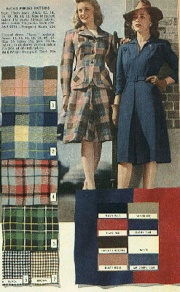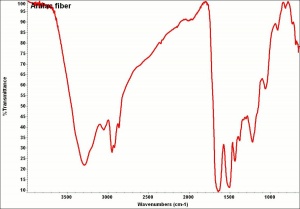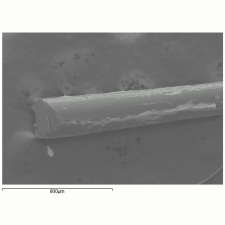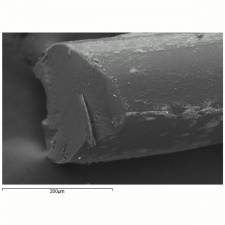Difference between revisions of "Aralac"
Jump to navigation
Jump to search
(username removed) |
|||
| Line 2: | Line 2: | ||
== Description == | == Description == | ||
| − | [Aralac] The U.S brand name for a synthetic polyamide fiber polymerized from casein. Aralac was developed by the American Research Associates, hence its name ARA+lac (latin for milk). Based on a process developed in 1935 in Italy (see [ | + | [Aralac] The U.S brand name for a synthetic polyamide fiber polymerized from casein. Aralac was developed by the American Research Associates, hence its name ARA+lac (latin for milk). Based on a process developed in 1935 in Italy (see [[Lanital|Lanital]]), Aralac was sold in the U.S. from the late 1930s until 1947. Aralac is a translucent, silky, white fiber that was blended with wool, mohair, rayon, and cotton for fabrics. It was also mixed with rabbit fur for felt hats. |
== Synonyms and Related Terms == | == Synonyms and Related Terms == | ||
Revision as of 13:55, 7 January 2014
Description
[Aralac] The U.S brand name for a synthetic polyamide fiber polymerized from casein. Aralac was developed by the American Research Associates, hence its name ARA+lac (latin for milk). Based on a process developed in 1935 in Italy (see Lanital), Aralac was sold in the U.S. from the late 1930s until 1947. Aralac is a translucent, silky, white fiber that was blended with wool, mohair, rayon, and cotton for fabrics. It was also mixed with rabbit fur for felt hats.
Synonyms and Related Terms
Ara-plaid; Ara-flannel
Hazards and Safety
Dryclean only. Dampness can result in a sour milk smell.
Additional Information
Joan Kiplinger 'Vintage Fabrics' at Fabrics.net
Comparisons
Properties of Synthetic Fibers
Authority
- G.S.Brady, Materials Handbook, McGraw-Hill Book Co., New York, 1971 Comment: p. 153
- Rosalie Rosso King, Textile Identification, Conservation, and Preservation, Noyes Publications, Park Ridge, NJ, 1985
- Website address 1 Comment: http://www.fabrics.net/joan1102.asp



